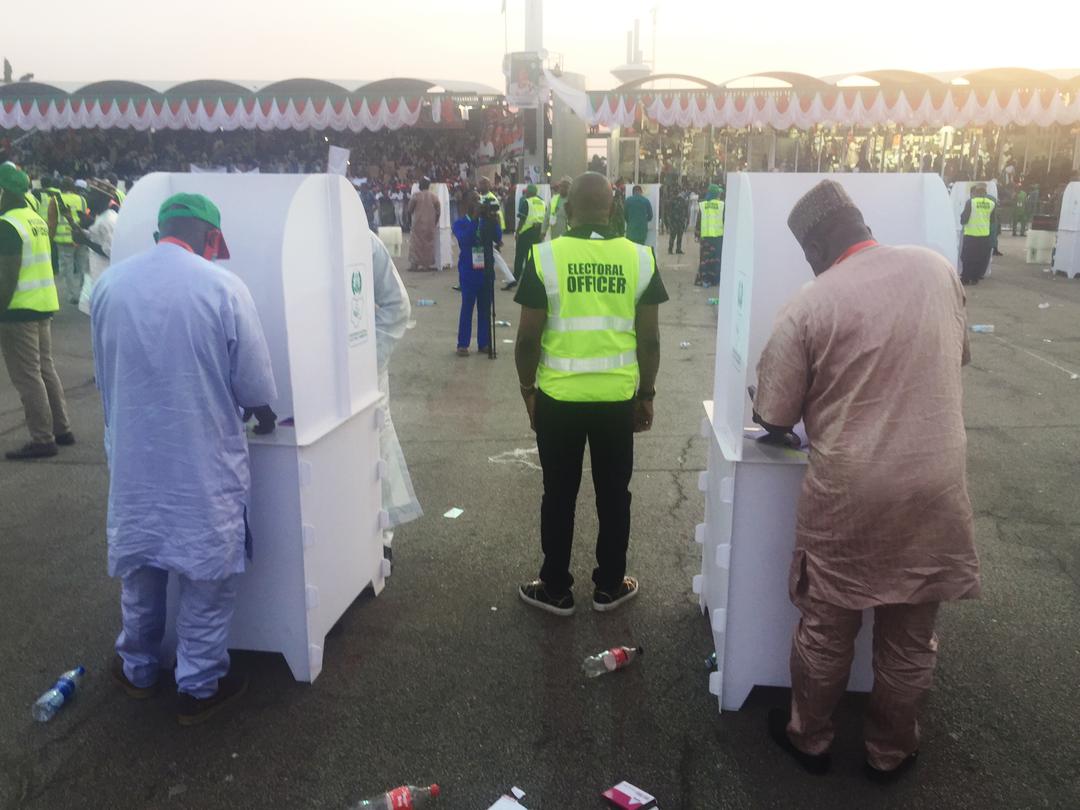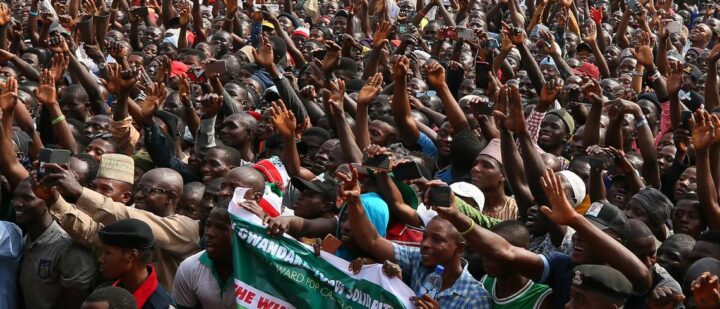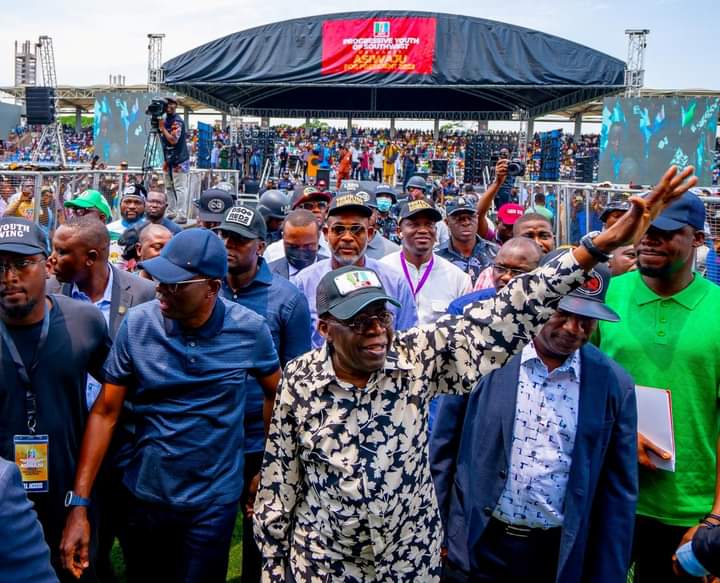BY MUHAMMAD NASEER ABDULLAHI
The previous week had seen two legal gladiators (Falana and Ozekhome) engaged in an intellectual battle over the legal propriety or otherwise of Jonathan vying for the office of the president of the federal republic of Nigeria in the forth-coming general election.
It would be recalled on the 10th of May, 2010, Jonathan, as vice president, took the oath of office of the president to complete the tenure of President Umaru Musa Yar’adua by reason of the latter’s demise.
Nigeria is by the clear letters of section 2(1) of the Constitution of the Federal Republic of Nigeria 1999 (hereinafter referred to as CFRN) is christened a federal republic, which means that her head of government is elected to office for a fixed period of time known as tenure. The tenure consists of four years from the date the oath of office is taken, which makes a term. This term is only renewable once through an election. Section 137(1)(b) CFRN. This means that one is disqualified from contesting and being elected to the office of the president if “he has been elected to such office at any two previous elections”.
Advertisement
Whether the 2010 oath taken by Jonathan created a term of office envisaged under section 137(1)(b) CFRN, as to bar him from contesting for the office of the president in 2015, was the cross of contention in Cyriacus Njoku v Goodluck Ebele Jonathan.
The appellant, in that case, has sued Jonathan for vying for the office of the president which, in his argument, amounted to contesting for a third term which is in violation of section 137(1)(b) CFRN. The matter was dismissed at the lower court in favour of the respondent/defendant (Jonathan).
Counsel to the respondent had argued that a term of office is one that runs for four years after an election. They went further to state that the wording of the law is “…has been elected to such office at any two previous elections”. It, therefore, means that for the respondent to be disqualified from contesting in 2015, he must have contested as president and subsequently elected as one in two previous elections and not how many times he took the oath of office of the president. The fact established to all is that the respondent only contested and was elected once as a president of Nigeria and that was in 2011.
Advertisement
The appellate court couldn’t resist the fine argument put forward by Mr. Mike Ozekhome, SAN and, accordingly, upheld the decision of the lower court dismissing the appeal. The court also awarded the cost of #50,000 against the appellant.
The court, while dismissing the appeal, said: “Section 37(1)(b) (sic) disqualifies a person from contesting for president if he had been elected twice. Disqualification is through election and not oath-taking.”
Over the years, Nigerians have fought hard to ensure that no president gets a third term. In fact, nobody should be president for more than 8 years and from the decision supra, it appears that an individual can, tacitly, become president for more than two terms and if the likes of Jonathan were to be elected again, they would have ruled the country for more than 8 years, a situation the people can’t afford to let happen.
It is rumoured that such was the reason inter alia for the fourth alteration of the constitution assented to in the year 2018 introducing section 137(3) CFRN which, provides as follows: “A person who was sworn-in to complete the Term for which another person was elected as President, shall not be elected to such office for more than a single term”
Advertisement
Mr Mike Ozekhome, SAN is not contesting the fact that the law has changed with the introduction of section 137(3). He however disagrees with Femi Falana, SAN on whether this new law applies to Jonathan. In his view, it doesn’t and to hold otherwise would amount to applying the law in retrospect. What does he mean?
Our law, like that of many other countries, prohibits the application of the law of today to the fact of yesterday in matters relating to crime. To this end, section 4(9) of the constitution reads “NotwithstandNotwithstanding the foregoing provisions of this section, the National Assembly or a House of Assembly shall not, in relation to any criminal offence whatsoever, have power to make any law which shall have retrospective effect”
From a palour reading of sections 2 & 3 of the Interpretation Act and section 3 of the Acts Authentication Act, section 137(3) CFRN took effect from the date the president assented to it and that is the 31st day of May 2018. This act of legislation has changed the position of the law as settled in the 2015 case of Cypriacus Njoku (supra) and herald a new legal dispensation where no one who takes the oath of office of the president, can do so more than twice. The wording of this law is so intentional as if to say it was designed to estop Jonathan from ever being elected to the office of the president, and this is the position of the learned silk, Femi Falana
From the section above, it is assumed that the prohibition of retrospective or retroactive laws is limited to only matters of crime. This assumption, however, was dashed by the decision of the court in Hope Democratic Party v Peter Obi, where the court pontifies thus “This is in accord with common sense as a law yet to be existence cannot have effect on rights and/liabilities existing prior to its creation, commencement…”. That was per Onnoghen, JSC dismissing the appeal made by HDP in 2011 relying on a fact of 2006.
Advertisement
The prohibition against retrospective laws has by that decision of the supreme court been extended to non-criminal matters. This is jurisprudentially in tandem with the legal maxim “prospicit not respicit”, meaning the law is progressive and not retrogressive. It is commonplace to find, in many foreign jurisdictions within the common law tradition, ex post facto laws (retrospective laws) unpopular principles, held barbaric and unenforceable, and Nigeria isn’t an exception.
But that’s not all. Retrospective laws are effected in some circumstances and these are the expectations of the prohibition to enforcing them.
Advertisement
- In matters of court procure as to when, where and how a matter should go, it would apply. And, in fact, it did apply in the case of Gusau v. APC and Kusamotu v. APC., both 2019 decisions of the supreme court. In Gusau’s case (supra) the appellant had filed in January, 2018 an appeal against the decision of court of appeal delivered in December, 2017 on a pre-election matter. And the supreme court in 2019, dismissed his appeal for not being filed within 14 days as prescribed by section 285 (11) of the constitution, a law made on the 17th of June, 2018.
The law states as thus “An appeal from a decision in a pre-election matter shall be filed within 14 days from the date of delivery of the judgment appealed against.”
- Another exception to this rule is where the expresse provision of the new law, it is to apply retrospectively or where the intention of draftsman can be inferred to allow such. From a careful decko at how section 137(3) CFRN is worded, it may appear to one that a retrospective application of its provision is intended. And, I think, it so appeared to the learned silk, Femi Falana but not the learned silk, Mike Ozekhome.
The true intent of the draftsman is only known by the court and we can, at best, only predict what the court would do based on the doctrine stare decisis. It is predicted that the court would lean in favour of fairness and justice against applying a retrospective law. The interpretation, where it is express, would be strict.
Advertisement
This can be gleaned from the decision of the court in M.O.T v Okoroafor where per Ejiwunmi held thus “the House of Lords had reason to consider this question in Ingle v. Farrand …, Lord atkinson said this “Your Lordships were referred to several authorities laying the principle upon which the question should be determined whether a statute acts retrospectively or not. Among those authorities, the case of Smith v Callandar … were included. The rule which according to those authorities is to be applied is this stated in Moxwell on statutes, P. 382. principle of English Law that no statute shall be construed so as to have a retrospective operation unless such a construction appears very clearly in their terms of the acts, or by necessary and distinct implication.”
Applying the fact of Jonathan’s presidential oath in 2010 to a law of 2018, in my humble opinion, amounts to the application of law in retrospect.
Advertisement
In conclusion, while it is the preserve of lawyers to predict what the court would do, it is not a prophecy of what the court would do indeed, but what the court, eventually, does is the law. Consequently, while both senior advocates (among other lawyers) blow the swinging pendulum of judicial interpretation, it would never rest until these arguments of theirs are tested in a court of law. It is the writers’ opinion, that while anything is possible, the possibility that section 137(3) of CFRN would be held to apply in retrospect by the court of law is slim.
Muhammad Naseer Abdullahi can be reached via [email protected]
Views expressed by contributors are strictly personal and not of TheCable.
Add a comment






